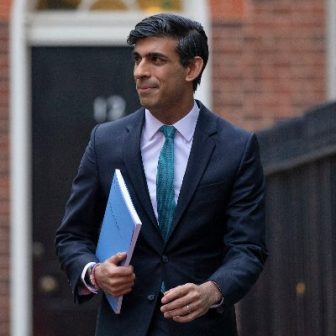Following the government’s decision to taper down emergency restrictions in the private rented sector, the chancellor Rishi Sunak is once again being urged to do more to address the mounting rent debt crisis.

In December 2020, 9% of private renters, or 353,000 households, were in arrears – putting them at risk of eviction, up from 3% of renting households in 2019-20, according to government figures.
Separate research for the National Residential Landlords Association (NRLA) has shown that there are an estimated 840,000 private tenants who have built rent arrears since lockdown measures began.
With no action possible against them over the past year or so, these debts are increasing to the point where there is no hope of many being able to afford to pay them back. The outcome will be that most will have to leave their homes as emergency measures taper down from June.
On top of this, the damage such debts could have on credit scores will cause tenants difficulties when wanting to move home.
Although most landlords have been working with struggling tenants to help keep them in their homes as far as possible, 60% have lost rental income as a consequence of the pandemic. Of these, 39% said the losses were continuing to increase.
Ben Beadle, chief executive of the NRLA, commented: “Having operated under emergency conditions for over a year, the announcement from the government is an important step in ensuring the sector’s recovery.
“It does nothing though to address the rent debt crisis. With the number of private tenants in arrears having increased threefold since lockdown measures started, more are at risk of losing their homes as restrictions ease.
“We want to see tenancies sustained wherever possible and call on the chancellor to step in and provide affected tenants with the financial support they need to pay off rent arrears built as a result of the pandemic.”
Councillor David Renard, the housing spokesperson for the Local Government Association, a cross-party body which represents councils, has called for more cash for homelessness prevention services to prepare for the surge.
“We recognise that the ban on eviction enforcement, which provided vital reassurance to renters during the pandemic, cannot continue indefinitely,” he said.


I have 2 tenants; one is a single mother and the other a single man.
The mother lost her job at the start of the pandemic and was ashamed and embarrassed because she’d never had to claim benefits before. But we helped her with rent deferral and applying to the DWP until she was receiving her benefits. She is not a single penny in arrears.
The single man is a self-employed decorator and hasn’t stopped working throughout the pandemic. But he simply decided to stop paying his rent at the start of the pandemic. He has claimed all his SEISS grants on top of his income, and even received a £6000 tax rebate. We have offered help with a payment plan and out of desperation even offered to clear his debt in full if he vacated, but he doesn’t respond. To date, we have lost £7,500 which we will never recover, our costs are mounting, and we still have no date for his eviction hearing.
I took my state pension earlier than planned last year because I lost my emoloyment in March. My tenant has actually been given more in taxpayer-funded grants than any income I’ve had, yet I’m forced to allow him to live rent-free at my expense. How can this be fair?
You must be logged in to like or dislike this comments.
Click to login
Don't have an account? Click here to register